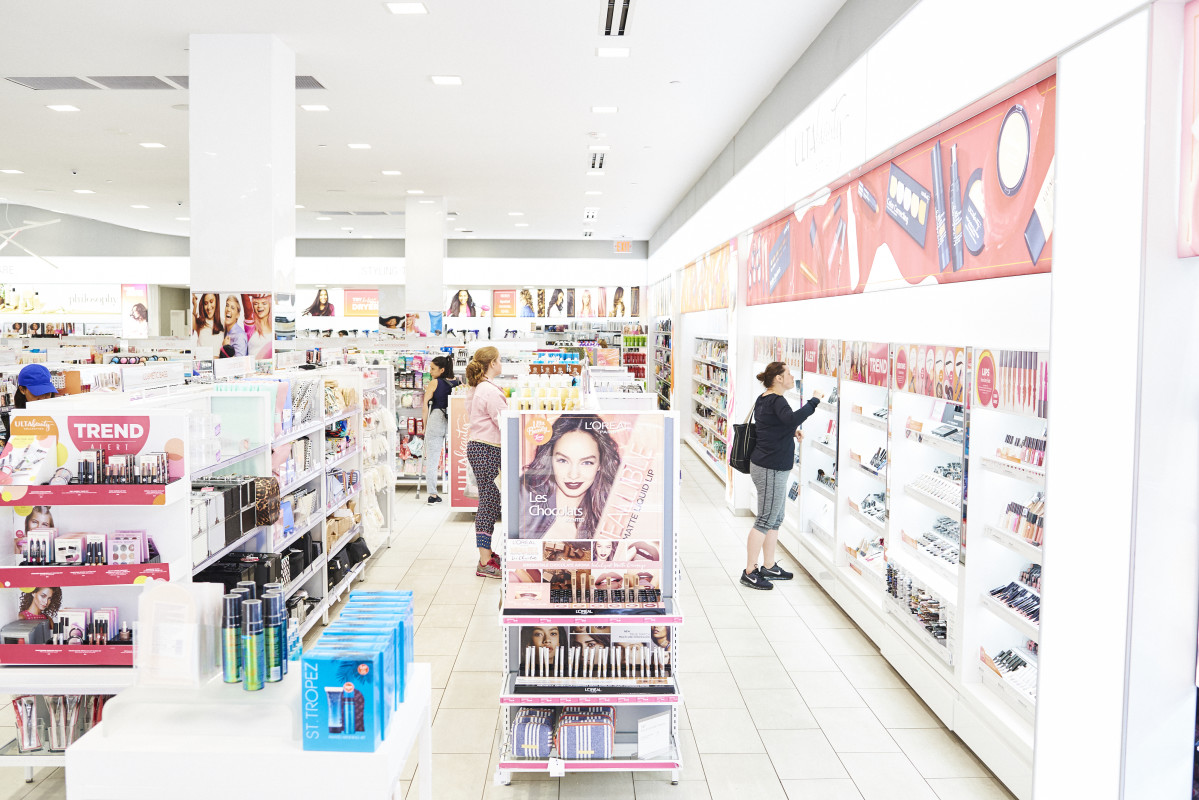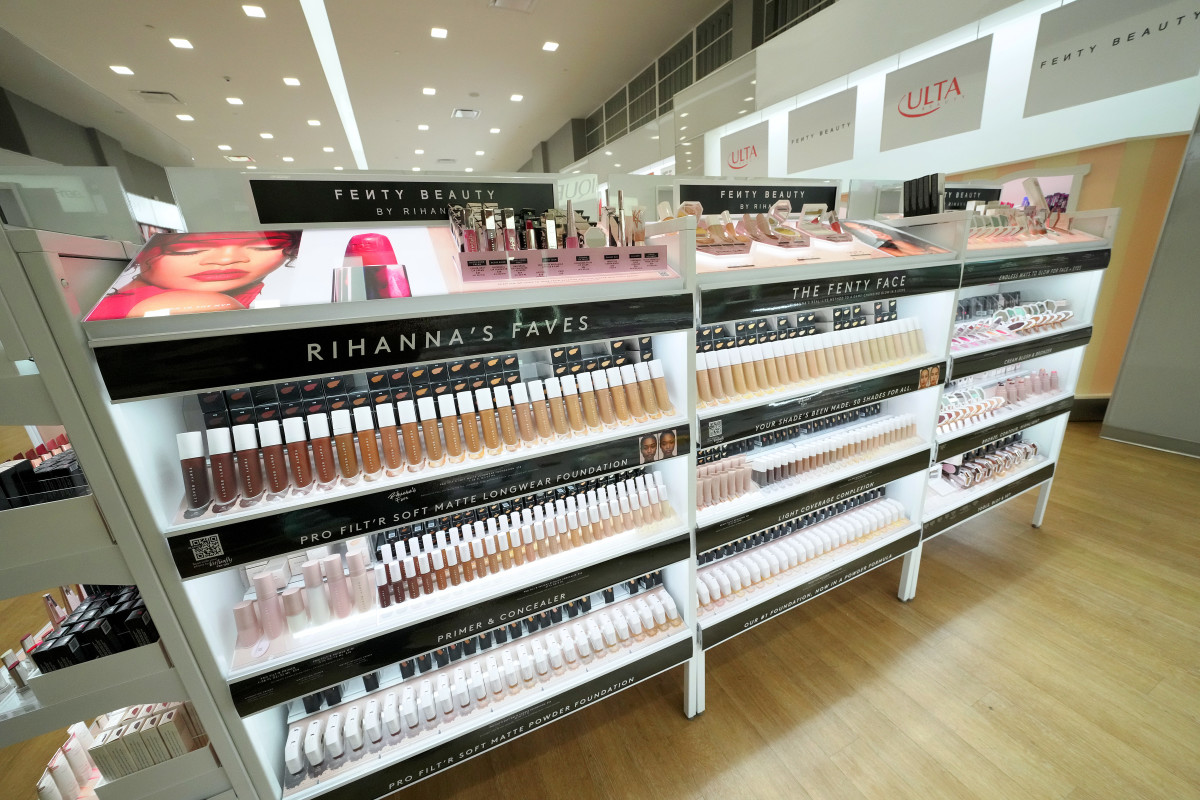
Over the past several years, cosmetics has been one of the fastest-growing retail industries.
Recent estimates put the United States beauty space at a valuation of around $374.2 billion. Celebrities like Kylie Jenner, Rihanna, and Serena Williams are cashing in on their own lines, and large behemoths like Estee Lauder and L'Oreal continue to grow their portfolios each year.
Related: Walmart store managers are now earning an astounding income
Beyond the brands, another more confounding trend has marked the beauty industry over the past decade.
Rather than transitioning entirely to online sales, brick-and-mortar stores like Ulta (ULTA) and LVMH (LVMHF) -owned Sephora have seen rapid success rates, particularly in urban and suburban areas with lots of foot traffic.
These stores, which tend to operate separately from malls (though most indoor shopping malls feature large Sephora stores), have seemed to buck the retail apocalypse. Since shopping for beauty is an inherently tactile experience, where customers prefer to swatch, test, and sample cosmetics like perfume and lipsticks, stores continue to see comparable store sales increase and foot traffic rise, even as other specialty retailers struggle to bring in that same enthusiasm.
More Retail:
- Ulta CEO sounds the alarm on a growing problem
- Lululemon releases a first-of-its-kind product
- Target store introduces a new 'over 18' policy
- Amazon launches genius new subscription product
In fact, some struggling retailers have begun opening up in-store cosmetic stores to boost foot traffic. For instance, Kohl's (KSS) has touted the recent success rate of its partnership with Sephora, which features mini Sephora stores within its walls. Target (TGT) implemented a strategy similar to Ulta's and has seen similar success.

Beauty has defied trends
One simple but overlooked reason the cosmetics industry has been booming in recent years is the lipstick effect, which suggests that even during economic downturns, shoppers are still willing to treat themselves to little luxuries—like lipstick and makeup.
Few beauty enthusiasts are willing to forgo their favorite items even in the worst of economic times. With social media accelerating beauty trends and new releases at a rapid pace, it's hard to keep up without spending a little money here and there.
Related: Amazon takes on Uber, DoorDash with genius (and free) service
So retailers like Ulta and Sephora have benefitted greatly over the past several years; Ulta specifically has seen bumper earnings quarter after quarter.
Q4 2024 earnings, reported in mid-March, saw Ulta revenue jump 10.15% year-over-year, with net income up 15.74%.
Ulta CEO sounds a troubling call
But nothing is forever. And given the increasing pressure of inflation and rising prices, eventually, something has to give.
Q1 earnings, which came out last week, saw net sales increase by 3.5% to $2.7 billion, and comparable store sales grow by 1.6%. While these numbers may still sound good, they're nothing compared to quarters past, and Ulta CEO Dave Kimbell told analysts he's disappointed.
"We are not satisfied with our market share trends," Kimbell told analysts on the call, adding management would be "taking actions to reinforce our leadership position and accelerate growth."
"Growth is moderating, as expected after three years of unprecedented expansion, and competitive intensity is increasing," he added, likely nodding to the rapid addition of beauty outlets online, like on Amazon (AMZN) , as well as the successful Sephora in Kohl's model.
Kimbell added that Ulta would revise its guidance for the full year lower.
Management expects net sales to come between $11.5-$11.6 billion for the fiscal year, down from $11.7-$11.8 billion, and comps to increase between 2-3%, down from 4-5% before.
Related: Serena Williams launches a potential billion-dollar business
Ulta SVP of Finance Paula Oyibo added that the enthusiasm the store saw for new brands and luxury beauty last year has staved off a bit.
"Makeup comp sales decreased to mid-single-digit range. While new brands and guest engagements with our luxury platform was strong, this growth was more than offset by sales decreases from brands that experienced extraordinary growth last year, newness from existing brands that did not meet expectations, and increased points of distribution," she said.
Kimbell added that he believes the revisions, plus some innovations and brand collaborations to be rolled out in stores later this year, will be enough to stop the losses.
"We are confident we have identified the right actions to deliver stronger revenue growth," he said.
Related: Veteran fund manager picks favorite stocks for 2024




.jpg?w=600)


